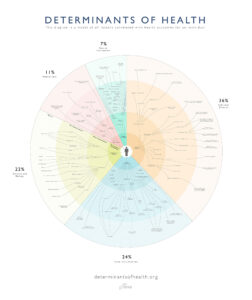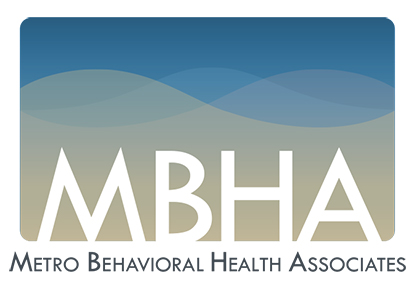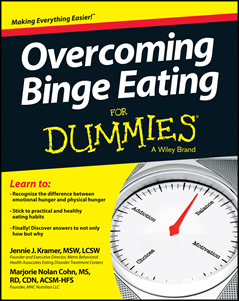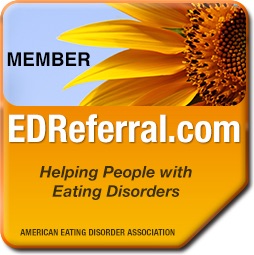When Health Obsession Becomes Orthorexia
It’s safe to say that in 2023 everyone knows DIETS NEVER WORK. In fact they are harmful and the leading cause for the onset of eating disorders. Studies have shown that 95% of weight lost is regained within 2-5 years. Which is in part why diets have had to rebrand themselves as ‘wellness’ and ‘lifestyle changes’. They’ve become so insidious that they’re not always easy to identify. What are sold as health promoting behaviors are most often quite disordered. This angle of diet culture is also known as ‘toxic wellness culture’ and can become a slippery slope to orthorexia. Lesser known and arguably more prevalent than anorexia or bulimia, orthorexia is an unhealthy and rigid obsession with eating healthily. It isn’t yet included in the Diagnostic and Statistical Manual of Mental Disorders, but is widely recognized by experts as harmful to the mind, body, and spirit.
Intuitive eating and gentle nutrition can be helpful to overall well being, but orthorexia is by no means intuitive. Read on to understand the common signs of health obsession.
Worries about food quality
One of the main tenets of toxic wellness culture is the concept of righteous eating. Food choices are thought to be a matter of moral virtue and are a reflection of a person’s character. The media perpetuates these messages by skewing medical nutrition research. They make it seem like food either has the power to kill you or heal you. Fresh, ‘whole’, raw, ‘clean’ ‘superfoods’ make a person ‘good’ and ‘pure’ whereas other foods are labeled as ‘bad’ and ‘dirty’. This is the furthest thing from intuitive eating.
Avoid going out to eat/food prepared by others

Toxic wellness culture’s strongest marketing tactic is fear mongering. There’s a belief that commercially prepared food might have hidden ingredients that could compromise optimal health. Since it isn’t practical to know every ingredient and preparation detail involved in eating at a restaurant, it feels safer to avoid going out than to experience anxiety about the unknown.
Fear sickness
Orthorexia reduces health to food choices alone. It promotes the idea that if we eat perfectly, we’ll never again experience sickness. Health consists of not only our physical wellbeing but also mental, emotional, and spiritual wellbeing. Sickness is an inevitable part of the human experience and has a variety of contributors, including stress, trauma and genetics.

Bury themselves in food research
Media that fearmongers about food and body size sells. The kicker is, scientists often summarize results of nutrition studies in simplified and sensationalized ways to increase their likelihood of funding for future research. It’s important to remember that health professionals are biased humans who are equally influenced by our fatphobic culture.
Eliminate whole food groups
Two of the most commonly demonized foods in toxic wellness culture are gluten and sugar.
Gluten
In 2013, a study showed that people who believed they were eating gluten, but weren’t, felt badly because they expected such an effect. If a person believes strongly enough that gluten can trigger bloating, brain fog, fatigue, etc, the thought alone is powerful enough to do so. This is called the ‘nocebo effect’.
Sugar

Toxic wellness culture names not being able to trust yourself around sugar as an ‘addiction’. Addiction is the abuse of a substance not essential to your survival. Sugar is essential to our brain function. ‘Sugar is as addictive as cocaine’? The study that misconception is based on was done on rats and fails to mention two very important details:
- The rats had limited access to sugar. Only when deprived did they eat in a way that might look addictive.
- The reward centers of the brain that light up in response to sugar and cocaine do the same to things like music, orgasms, and playing with puppies. But we don’t use ‘addiction’ to describe these things.
Fear losing control
Mental restriction triggers the body’s biological survival response of last supper eating. The ‘good’ vs. ‘bad’ mentality around food choices creates the perfect conditions for the inner rebel to come out. All plans for eating mindfully vanish and you’re left feeling like, ‘What’s wrong with me?!’ yet again. This pattern confirms to your brain that you are the problem, not toxic wellness culture.
Criticize others’ food choices
When food quality becomes a reflection of a person’s morality, toxic wellness culture judges others for ‘not caring’ about their health. What this perspective fails to recognize is that food quality is a privilege not afforded to the majority of the world’s population. Shaming someone who is working three jobs for drinking a coca-cola as their one source of pleasure is not the health-promoting flex society thinks it is.
Feel like they’re in a vicious cycle
Health obsession is distressing and often creates the exact effects it claims to prevent like anxiety and GI distress. The danger is that externally, orthorexic behaviors are often praised and admired for being so disciplined. When food and exercise become a person’s identity they can struggle to find a purpose beyond maintaining optimal health.
Side Effects of Orthorexia
Being ‘too healthy’ sounds like an oxymoron, doesn’t it? Ironically enough, there are several mental, emotional, and physical impacts of being health obsessed.
- Osteoporosis
- Problems with cognition
- Lowered immune system
- Malnutrition
- Social isolation
- Emotional instability
- Kidney failure
- Infertility
- Nutritional deficiencies
- Low sense of self-worth
- Anxiety and stress
- Heart disease
Risk Factors for Developing Orthorexia
Social Media

Weight stigma is rampant across platforms like Facebook, Instagram, and TikTok. Influencers who live with multiple privileges gain authority as health experts. What gets attributed to their diet and exercise routines are actually the result of disordered behaviors, or genetic predispositions to be thin and conventionally attractive.
College Students
All university-aged individuals are susceptible to health obsession as they’re forming their identity, independence, and autonomy. However students in health-related majors like dietetics, nutrition, kinesiology, and biology may be more prone to orthorexia than other majors.This time of vulnerability combined with the need to feel in control can aggravate anxiety and perfectionism.
Treatment
If you or a loved one are experiencing any of these signs and symptoms, don’t hesitate to contact us so we can incorporate carefully chosen treatment options that offer a thoughtful treatment approach. We are a team of caring and compassionate clinical professionals that believe in treating the whole person in a collaborative setting. At MBHA, we work with each client to determine an individualized treatment plan with pacing and goals that feel safe and are achievable.

Helping You Gently Find Your Balance
Ask About Our Free Consulation
Control binge eating and get on the path to recovery. This book provides trusted information, resources, tools, and activities to help you and your loved ones understand your binge eating — and gain control over it.
Certified Eating Disorder Specialist designation by the International Academy of Eating Disorder Professionals



